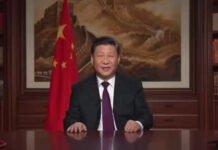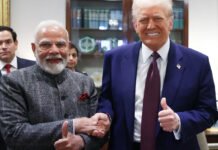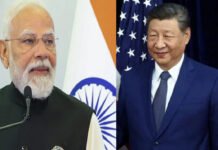
India’s Foreign Minister, S. Jaishankar, recently completed a vital diplomatic mission to Sri Lanka, one that could shift the geopolitical balance in South Asia. Historically, China has exploited the vulnerabilities of India’s neighboring countries—Pakistan, Nepal, and Sri Lanka—aiming to encircle India and extend its influence. However, in a significant turn of events during Jaishankar’s visit, Sri Lanka has taken a decisive stance against China’s attempts to leverage its territory for strategic gains.
Sri Lanka Sends a Strong Message to China
During Jaishankar’s meeting with Sri Lankan President Anura Kumara Dissanayake, a clear message was sent: Sri Lanka will not allow its soil to be misused for anti-India activities. This statement is not only significant but marks a strategic alignment between India and Sri Lanka, one that echoes through the corridors of global diplomacy. The president’s firm stance against China’s potential misuse of Sri Lankan land reflects the deepening security collaboration between India and Sri Lanka.
This move is a direct counter to China’s Belt and Road Initiative (BRI), through which Beijing has been attempting to expand its influence across South Asia. Sri Lanka, being a crucial node in the Indian Ocean, holds immense geopolitical value for China. However, this latest development showcases a recalibration of Sri Lanka’s policies, favoring closer ties with India over falling deeper into China’s debt trap diplomacy.
The Strategic Importance of Jaishankar’s Visit
Jaishankar’s visit to Colombo was more than just a routine diplomatic engagement; it was a calculated effort to ensure that India remains a central player in Sri Lanka’s political and economic recovery. Amidst Sri Lanka’s ongoing economic crisis, India has emerged as a key ally, offering economic aid and financial support to stabilize the country. Jaishankar’s diplomatic approach has been essential in ensuring that Sri Lanka views India as a partner, rather than a rival.
China’s presence in Sri Lanka has been largely through infrastructure projects such as the Hambantota Port and the Colombo Port City, both of which have raised concerns about the sovereignty of Sri Lanka due to China’s overwhelming financial control. Jaishankar’s visit sought to counterbalance this by strengthening India-Sri Lanka economic ties, highlighting India’s role in Sri Lanka’s economic recovery without the strings attached to China’s loans.
Security Ties Between India and Sri Lanka Deepen
Security remains a primary concern for both nations, especially with the growing Chinese naval presence in the Indian Ocean. Jaishankar and Dissanayake emphasized that the security interests of both India and Sri Lanka are interlinked. India has long viewed Sri Lanka’s location as vital for maintaining maritime security in the region. With increasing instances of Chinese submarines docking in Sri Lankan ports, this cooperation is more critical than ever.
By ensuring that Sri Lanka’s military cooperation with India remains robust, both countries have agreed to a framework that ensures their territories are not exploited by external forces. This is a direct message to Beijing, reinforcing that any anti-India activities originating from Sri Lankan territory will not be tolerated.
India’s Continued Economic Support to Sri Lanka
India has played a pivotal role in providing economic assistance to Sri Lanka during its financial crisis. During the discussions, Jaishankar reaffirmed India’s commitment to aiding Sri Lanka in its economic reconstruction. India’s support ranges from providing essential supplies, such as food and medicine, to offering financial loans to stabilize the nation’s economy.
In return, Sri Lanka assured India that its territory will not be used in any way that undermines India’s national security. This assurance is a crucial step in maintaining the balance of power in the region, especially with China’s looming presence in Sri Lanka’s infrastructure projects.
China’s Growing Influence in South Asia
China’s Belt and Road Initiative has enabled Beijing to spread its influence across South Asia through large-scale infrastructure projects. Sri Lanka, a strategically located island nation in the Indian Ocean, has been at the center of China’s focus. The Hambantota Port, one of the most prominent projects, is now under Chinese control after Sri Lanka leased it to China for 99 years. This deal, often cited as an example of China’s debt-trap diplomacy, has raised concerns about Sri Lanka’s sovereignty.
For years, China has utilized these infrastructure projects to gain strategic leverage over Sri Lanka. By providing loans for these large-scale projects, China has effectively ensnared Sri Lanka in crippling debt. As a result, Sri Lanka’s ability to maintain its independence in foreign policy decisions has been questioned. However, with Jaishankar’s visit, India has reasserted its role as a key ally, ensuring that China’s influence does not grow unchecked.
Sri Lanka’s Pledge to Protect Its Sovereignty
The most significant takeaway from Jaishankar’s visit is Sri Lanka’s strong commitment to safeguarding its sovereignty. President Dissanayake’s pledge to prevent any misuse of Sri Lanka’s land against Indian interests is a clear indication that Sri Lanka is rethinking its foreign policy approach. While China’s economic assistance remains a key factor for Sri Lanka, there is a growing recognition that being overly dependent on Beijing can lead to severe political consequences.
India’s diplomatic overtures, combined with economic aid, have given Sri Lanka the confidence to challenge China’s influence. This shift in approach could have far-reaching consequences for the region, as more South Asian nations may begin to reassess their relationship with China and look towards India for partnership and support.
A Stronger India-Sri Lanka Relationship
Jaishankar’s visit to Sri Lanka marks a significant moment in India-Sri Lanka relations. With China’s growing influence in the region, it was imperative for India to reestablish itself as a reliable partner for Sri Lanka, especially in the face of economic and security challenges. Sri Lanka’s pledge to prevent its land from being used against India’s interests is a significant victory for India’s diplomatic efforts.
Moving forward, the relationship between India and Sri Lanka will likely continue to grow, with both nations working closely on economic recovery, security cooperation, and ensuring that their shared strategic interests are protected. While China will undoubtedly continue its efforts to influence Sri Lanka, the strengthened bond between India and Sri Lanka presents a formidable counter to any future geopolitical maneuvers.















